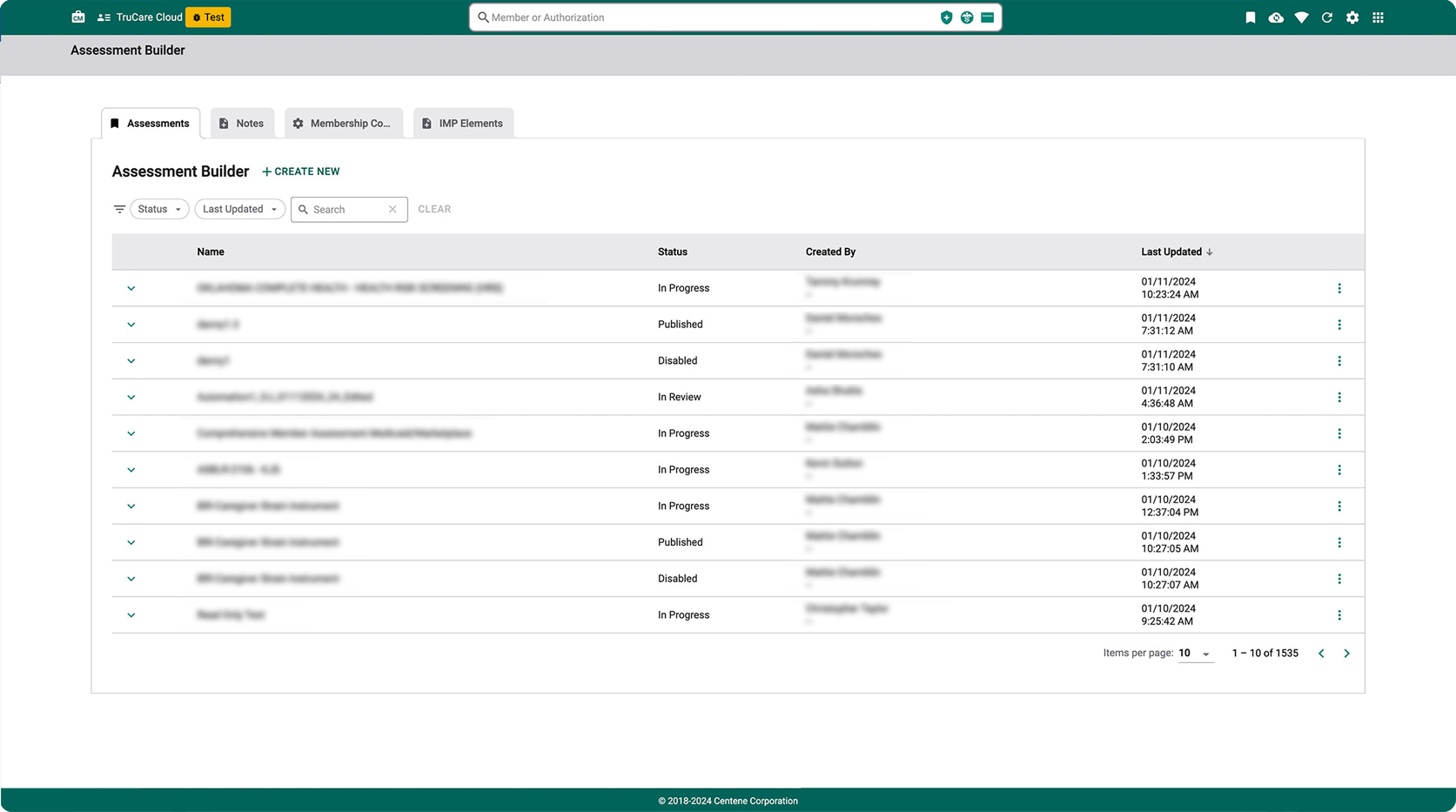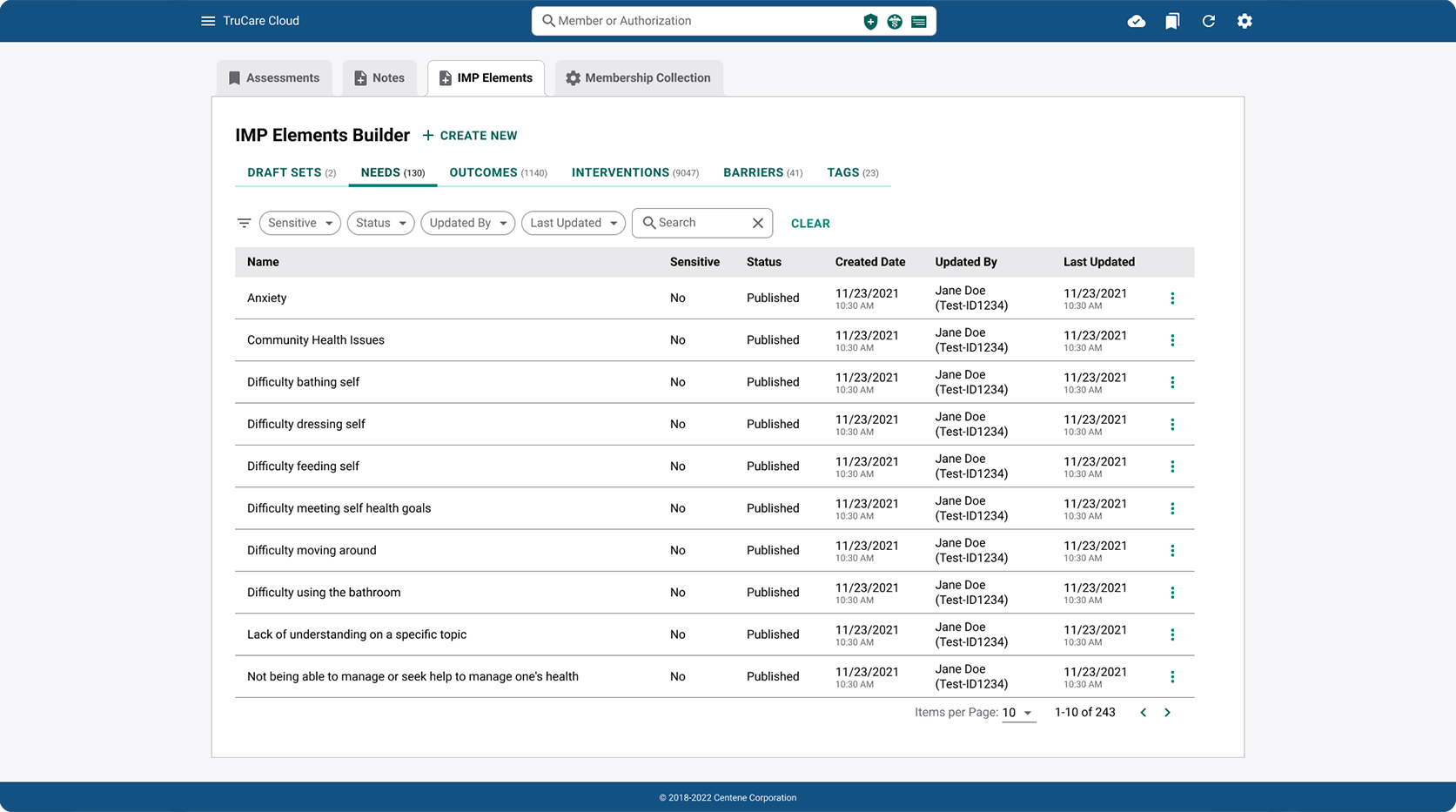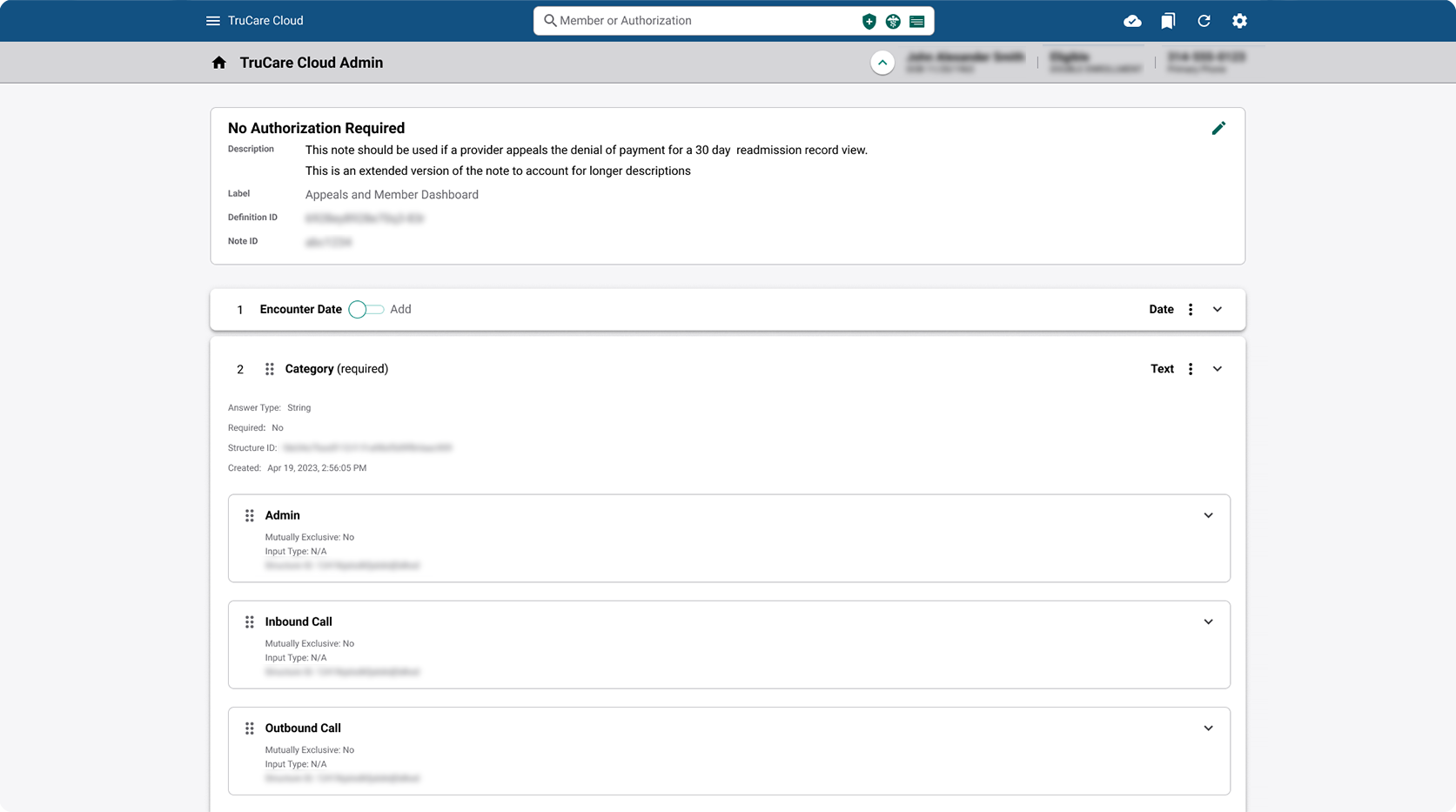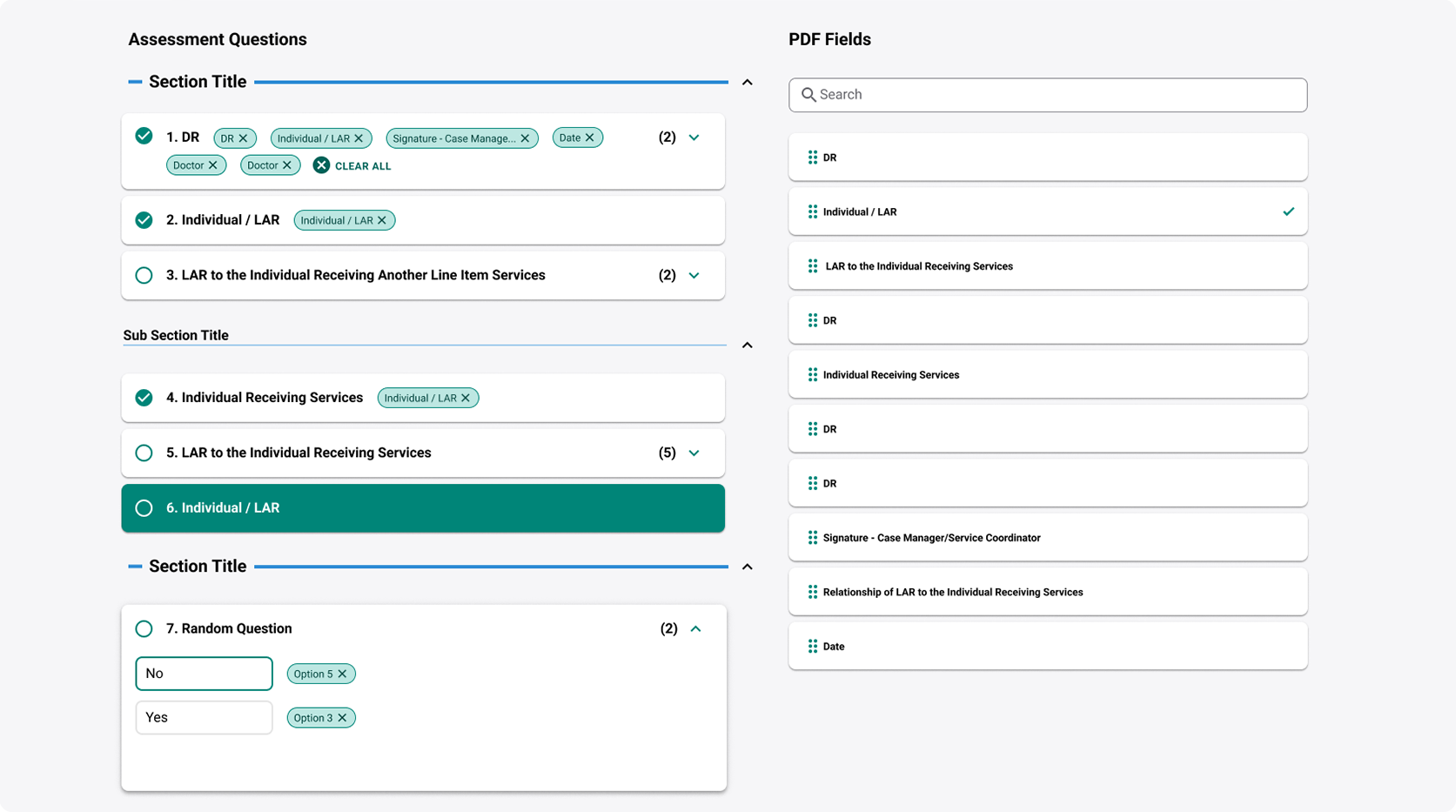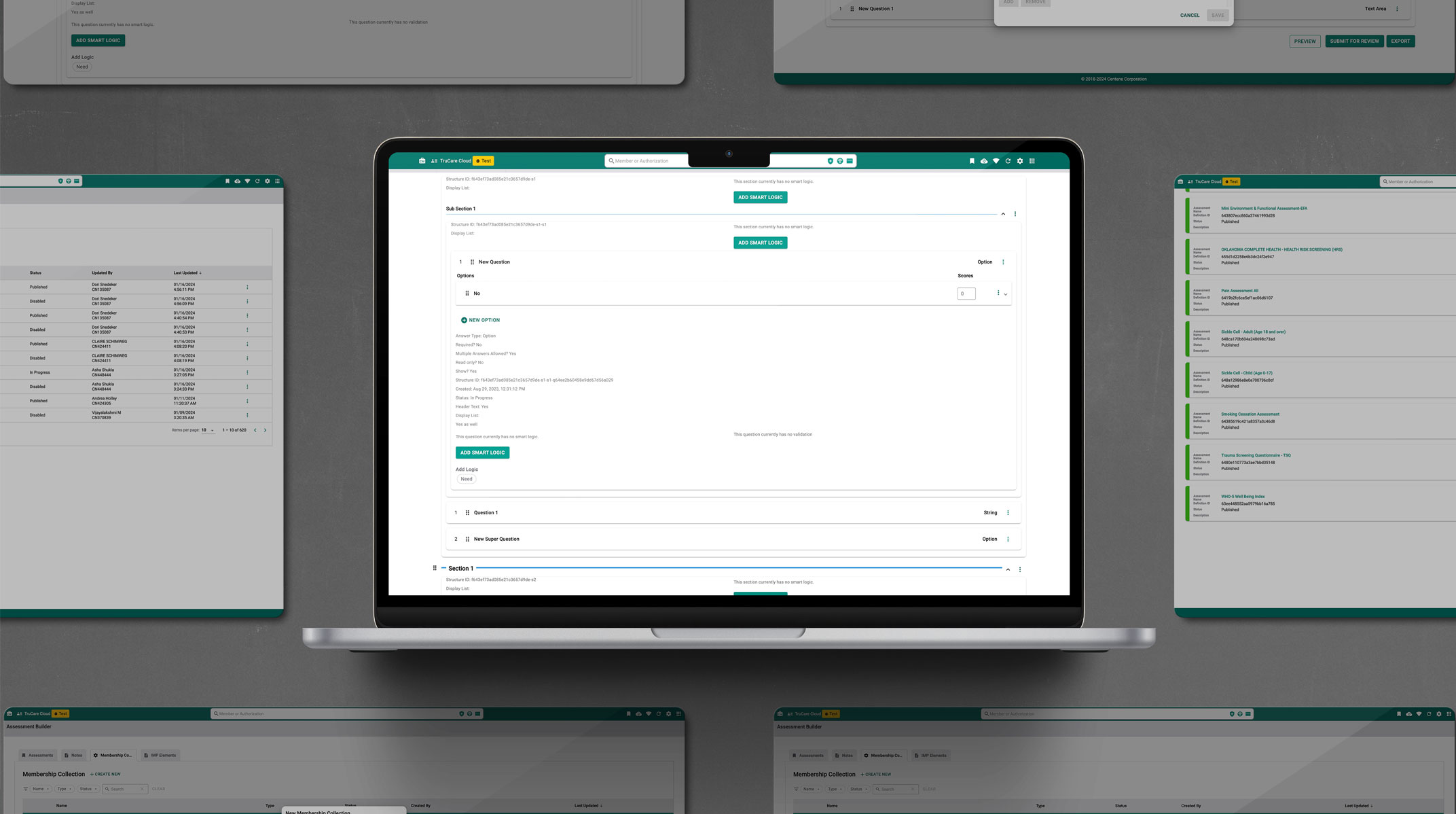Assessments dashboard.
Finding a Solution
My process again began with deep user research, where I interviewed many care management team members and product owners. This helped uncover pain points quickly and allowed me to refine my initial concepts into clear user-journeys and wire-frames.
This iterative feedback loop was crucial in transforming the initial designs into the final, high-fidelity workflows.
I was able to apply these insights to our companies existing design patterns and guidelines, balancing user needs with system constraints, ultimately fitting them within the overall builder tool layout to deliver intuitive, scalable, and easy-to-use solutions for each product.
We wanted each product to retain its unique identity while still feeling part of a unified workflow. To support this, we adopted a color ID convention that built on each product's existing palette and subtly wove those colors into their respective pages.
IMP Elements.
While the dashboard unified the experience at a high level, the real complexity surfaced within each product’s detail pages. I had to account for hundreds of possible user paths, data states, and edge cases unique to personal health information. Designing for this level of nuance required a flexible, modular approach that could scale across the entire Builder Tools suite.
Care Management claimant page.
Each product in the suite included a detailed page view for individual claims or assessments. These pages had to accommodate hundreds of unique scenarios based on a member’s health conditions, age, race, and other sensitive personal data. Designing for this level of complexity required a system that was flexible, yet precise enough to handle edge cases without overwhelming the user.
Smart Logic Implementation.
To address this, we incorporated smart logic into the platform—allowing the system to dynamically adjust content and options based on known inputs. For example, once a member’s profile indicated age or specific conditions, irrelevant questions or form fields were automatically removed or pre-filled. This reduced cognitive load, saved time, and ensured users could focus only on what mattered.
Results
The new and improved Builder Suite.
Changing scattered data into a coordinated system unlocked a new level of workflow efficiency.
Following the implementation of the new designs, Centene possessed a fully-integrated builder suite that allowed different departments to manage and coordinate all claims, assessments, notes and collections with ease. This eliminated the previous workflow inefficiencies caused by disconnected tools, resulting in a drastic improvement in company efficiency and providing a more powerful, intuitive platform for the in-house teams who relied on it daily.

